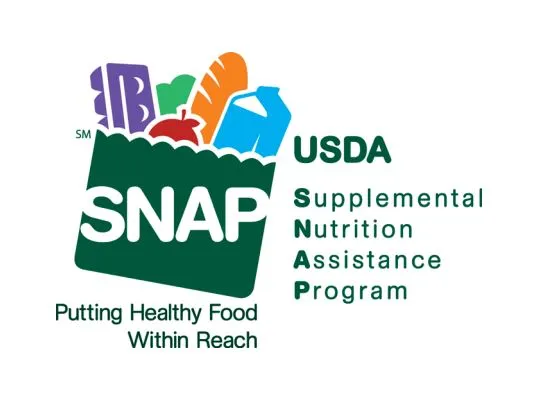
While the Supplemental Nutrition Assistance Program (SNAP) gives low-income Pennsylvanians extra money to purchase food, college students face unique challenges accessing those resources.
A 2019 United States Department of Agriculture report found that 10.5% of U.S. households faced food insecurity at least once during the year, but statistics on college students are less reliable as the federal government rarely publishes data specifically focused on college students’ food security.
Most recently, the 2020 National Postsecondary Student Aid Study found that around 22.5% of undergraduate students and around 12% of graduate students were food-insecure in the 30 days prior to completing the survey.
While these numbers are striking, student surveys began at the start of the pandemic in March 2020. Food insecurity spiked during the pandemic, so the 2020 NPSAS study may not be representative of the typical statistics.
But the fact remains that food insecurity is a serious issue that many college students — including students at Chatham University — face. Even if the 2020 statistics are inflated, there’s no guarantee that similar financial crises won’t happen again.
This is part of what makes SNAP, which is awarded based on factors such as income and household size, more vital than ever.
Typically, college students are unable to access SNAP resources, but there are situations that merit exemptions. If a student has a federal work-study position or works 20 hours a week or more, they qualify.
At Chatham, student employees are not allowed to work more than 19 hours a week during the academic year, according to the Chatham student employee handbook, meaning students must rely on being awarded federal-work study if they don’t meet any of the other exceptions.
Students are awarded federal work-study money based on need determined by their financial aid application. Federal work-study funds are not guaranteed from year to year as family income, financial need, whether a student used work-study funds offered to them in a prior year or how much funding their school receives are all variables that could affect whether a student receives funds.
Relying on federal work-study funding as an exemption also means that a student’s SNAP eligibility is tied to their performance in classes.
Students must meet certain academic goals to receive financial aid: they must earn 67% of cumulative, attempted credit hours; maintain a minimum, cumulative GPA of 2.0; and must not exceed 150% of the credits attempted for degree completion.
In no world should someone’s access to food be threatened if they struggle in classes. There are already so many barriers to receiving SNAP in college; Chatham’s 19-hour limit on student employees just adds another. If students could work 20 hours a week, they could reach the hour limit and not need federal work-study to access SNAP.
An hour of work will likely not be the difference between a student failing a class or succeeding in college, but it absolutely can be the difference between whether they have the money for food.
Students are also not eligible for SNAP if they have a meal plan that offers more than 10 meals per week, and Chatham requires the unlimited meal plans for first-year students. By requiring a meal plan without allowing first-year students to opt-out, Chatham eliminates students’ ability to apply for SNAP.
If students would rather use SNAP benefits than pay for a meal plan, that should be an option afforded to them by the University.
This is not to say that Chatham doesn’t make strides to provide students with food in times of need. There are essential needs pantries at all three Chatham locations: in Room 262 at Eastside, inside the Campus Lodge basement at Eden Hall and inside Student Health Services at the Shadyside campus. The latter is the only one that requires registration.
Food insecurity is a complex issue that requires systemic change, but Chatham can reduce barriers by allowing first-year students to opt out of meal plans to apply for SNAP and increasing the maximum student employee hours during the academic year to 20.
SNAP is an entitlement program, which means anyone who is eligible receives the resources they are entitled to by law. It isn’t taking resources from anyone, so there’s no reason for college students to not apply if they need it and are eligible. If you would like to apply for SNAP, your parents’ income must be considered for eligibility if you live at home or are 21 or younger.
Chatham’s website recommends applying for SNAP through Just Harvest, a nonprofit that aims to improve food access and offers assistance with SNAP applications.
Assuming you meet the income requirements and do not have a meal plan that offers more than 10 meals a week, you need to qualify for one of the exemptions. Being a parent, younger than 18 or older than 50 or having a disability makes you eligible. For a full list of exemptions, find the SNAP for college students page on PA.gov.



Thoughts on Editorial • Sep 18, 2024 at 4:24 pm
Hi, I noticed minor details that I felt were misleading. To start with is the claim, “Students are also not eligible for SNAP if they have a meal plan.” This claim is incorrect, when reading the SNAP eligibility, you can qualify if your meal plan offers 10 or fewer throughout the week. Thus, upper campus has one option, “Chatham 10 meal plan,” and lower campus has four options (All available options qualify). Also, federal work study is not a difficult thing to qualify for, making me question its importance to the article. I do agree that capping at 19 hours is a confusing choice. Many other universities cap at 20 and 25 hours. Plus, a 2.0 is considered failing at many institutions and would be grounds to losing federal funding for the student. With the claim that SNAP should not be loss, would you also say that federal funding should not either.
Abby Hakas • Sep 20, 2024 at 12:05 am
Thank you for pointing that out. I’ve edited the story to reflect the SNAP requirements in regards to meal plans. As for the federal work study, I added it because I personally know students who would qualify for SNAP who were not awarded federal work study. As for the question about federal funding, yes, I don’t think students should lose federal funding based on their grades, but that’s a larger conversation about my belief in free education! Thank you again for your comment.